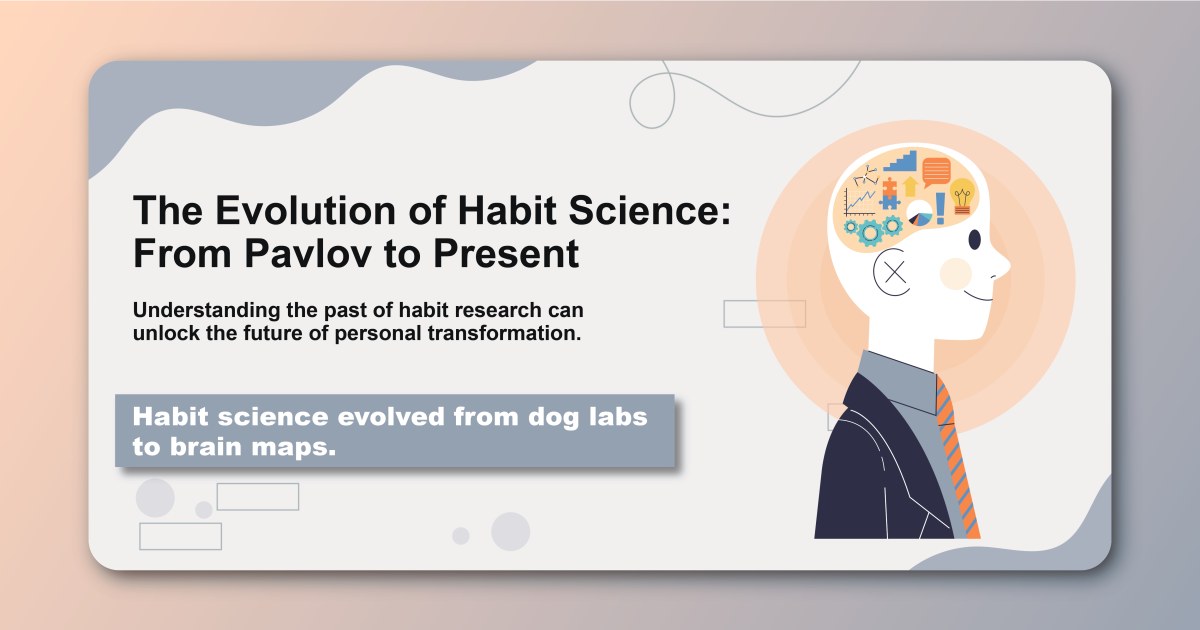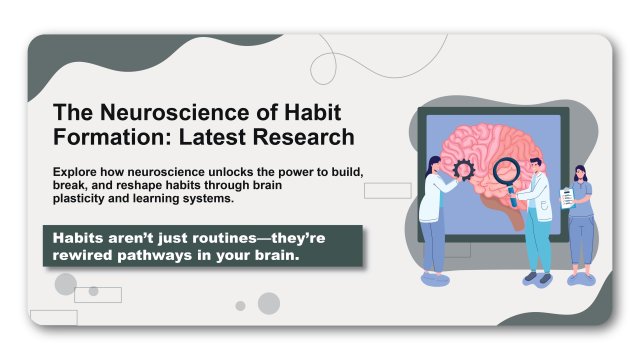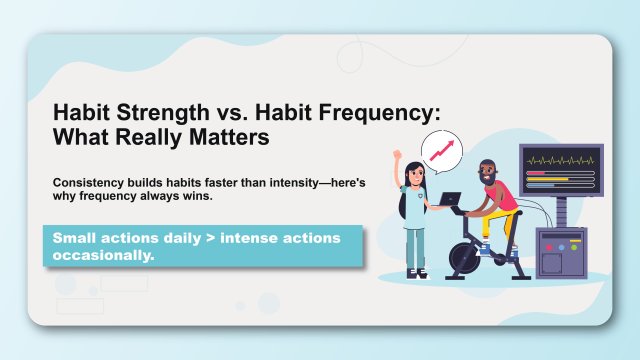The scientific study of habits has undergone a remarkable transformation over the past century, evolving from simple observations of animal behavior to sophisticated understanding of neural mechanisms underlying human behavior change. This journey through the history of habit science reveals not only how our knowledge has progressed but also how different theoretical frameworks have shaped practical approaches to behavior modification and personal development.
Early habit research began with basic questions about learning and behavior, but has evolved into a multidisciplinary field incorporating psychology, neuroscience, sociology, and behavioral economics. Each era of research has built upon previous discoveries while introducing new perspectives and methodologies that have revolutionized our understanding of how habits form, persist, and change.
The progression from behaviorism to cognitive psychology to modern neuroscience represents more than just academic advancement – it reflects fundamental shifts in how we conceptualize human nature, free will, and the possibilities for personal transformation. These theoretical changes have practical implications for how we approach habit formation, addiction treatment, and behavior change interventions.
Understanding this scientific evolution provides valuable context for current habit formation practices and reveals why some approaches work better than others. It also highlights the ongoing nature of scientific discovery and suggests future directions for habit research and application.
The story of habit science is ultimately a story of human curiosity about our own behavior and the persistent quest to understand how we can change for the better. From laboratory experiments with dogs to brain imaging studies of human volunteers, researchers have progressively unveiled the mechanisms that govern our daily actions and routines.
The Foundations: Early Behavioral Psychology
Ivan Pavlov and Classical Conditioning (1890s-1930s)
The Discovery of Conditioned Reflexes Pavlov's work with dogs laid the foundation for understanding how environmental cues trigger automatic behaviors.
Key Discoveries:
- Conditioned and unconditioned stimuli and responses
- The role of timing in association formation
- Extinction and spontaneous recovery of conditioned behaviors
- Individual differences in conditioning speed and strength
- Applications to human behavior and learning
Implications for Habit Formation:
- Understanding how environmental cues trigger habitual behaviors
- The importance of consistent pairing between cues and responses
- Recognition that habits can be "unlearned" through extinction
- Individual variation in habit formation susceptibility
- Foundation for cue-based habit change strategies
John B. Watson and Behaviorism (1910s-1930s)
The Behavioral Revolution Watson established behaviorism as a scientific approach focusing on observable behavior rather than internal mental states.
Behavioral Principles:
- Focus on observable, measurable behaviors
- Environmental determinism in behavior formation
- Rejection of consciousness and introspection as scientific methods
- Emphasis on learning through association and reinforcement
- Application of laboratory findings to human behavior
Habit Formation Concepts:
- Habits as learned associations between stimuli and responses
- Environmental control of behavior through stimulus manipulation
- Systematic desensitization and behavior modification techniques
- Early recognition of habit strength through repetition
- Foundation for behavior-focused interventions
B.F. Skinner and Operant Conditioning (1930s-1990s)
Reinforcement and Behavior Shaping Skinner's work on operant conditioning revealed how consequences shape behavior formation and maintenance.
Operant Principles:
- Positive and negative reinforcement in behavior strengthening
- Punishment effects on behavior suppression
- Schedules of reinforcement and their impact on behavior persistence
- Shaping complex behaviors through successive approximations
- Environmental design for behavior modification
Habit Science Contributions:
- Understanding how rewards and consequences influence habit formation
- Recognition of intermittent reinforcement in habit persistence
- Development of systematic behavior modification techniques
- Emphasis on environmental design for behavior change
- Foundation for modern reward-based habit formation strategies
The Cognitive Revolution: Adding Mind to Behavior
Albert Bandura and Social Learning Theory (1960s-1980s)
Social and Cognitive Factors in Learning Bandura's research revealed the importance of observation, modeling, and cognitive factors in behavior formation.
Social Learning Concepts:
- Observational learning and modeling
- Self-efficacy beliefs in behavior change
- Cognitive factors in learning and motivation
- Social influences on individual behavior
- Reciprocal determinism between person, behavior, and environment
Habit Formation Insights:
- Role of self-efficacy in habit change success
- Importance of social models and support in habit formation
- Cognitive factors mediating between stimuli and responses
- Social context influence on individual habit development
- Foundation for social cognitive approaches to behavior change
Walter Mischel and Self-Control Research (1960s-2000s)
The Marshmallow Test and Delayed Gratification Mischel's famous studies revealed the importance of self-control and cognitive strategies in behavior regulation.
Self-Control Discoveries:
- Individual differences in delay of gratification ability
- Cognitive strategies for resisting immediate temptations
- Long-term outcomes of childhood self-control differences
- Situational factors influencing self-control capacity
- Development of self-control throughout the lifespan
Habit Science Impact:
- Understanding the role of self-control in habit formation and maintenance
- Recognition of cognitive strategies for habit change
- Individual differences in habit formation and change capacity
- Environmental factors affecting self-control and habit execution
- Foundation for self-control-based habit interventions
Cognitive Psychology and Information Processing (1970s-1990s)
Mental Processes in Habit Formation Cognitive psychology revealed the mental mechanisms underlying habit learning and execution.
Cognitive Concepts:
- Attention and memory processes in habit formation
- Automatic versus controlled processing
- Schema formation and pattern recognition
- Cognitive load and habit automation
- Metacognition and awareness of habitual behaviors
Habit Understanding Advances:
- Recognition of habit formation as cognitive skill learning
- Understanding of automatic versus deliberate behavior control
- Role of attention and awareness in habit modification
- Cognitive load factors in habit formation and execution
- Foundation for mindfulness-based habit change approaches
The Neuroscience Era: Brain Mechanisms Revealed
Early Brain Research and Habit Circuits (1980s-2000s)
Discovering the Neural Basis of Habits Early neuroscience research began identifying brain regions involved in habit formation and execution.
Neural Discoveries:
- Basal ganglia role in habit formation and execution
- Striatal circuits in procedural learning
- Dopamine system involvement in learning and motivation
- Prefrontal cortex role in cognitive control
- Neural plasticity in habit formation and change
Scientific Breakthroughs:
- Mapping of habit-related brain circuits
- Understanding of neurotransmitter systems in habit formation
- Recognition of brain plasticity in adult learning
- Identification of habit formation as distinct from other learning types
- Foundation for neurobiologically-informed interventions
Modern Neuroimaging and Habit Research (2000s-Present)
Advanced Brain Imaging Techniques Modern neuroimaging has revealed detailed mechanisms of habit formation and change in living human brains.
Imaging Advances:
- fMRI studies of habit formation and execution
- PET imaging of neurotransmitter systems
- DTI mapping of white matter connections
- EEG studies of habit-related brain activity
- Real-time neurofeedback applications
Contemporary Discoveries:
- Detailed mapping of habit formation neural networks
- Understanding of individual differences in brain structure and function
- Recognition of habit formation as gradual neural network changes
- Identification of optimal brain states for habit change
- Development of brain-based interventions for habit modification
Ann Graybiel and Habit Loop Research (1990s-Present)
Chunking and Habit Sequences Graybiel's research revealed how the brain packages complex behaviors into automatic habit sequences.
Habit Loop Discoveries:
- Neural basis of habit "chunking" in the striatum
- Role of neural activity patterns in habit formation
- Distinction between goal-directed and habitual behavior
- Neural markers of habit strength and automaticity
- Brain mechanisms of habit flexibility and change
Research Impact:
- Understanding of habit formation as neural pattern development
- Recognition of habit strength as measurable neural phenomenon
- Identification of brain states associated with habit flexibility
- Foundation for targeted habit change interventions
- Integration of neuroscience with behavioral psychology
Contemporary Integrative Approaches
Behavioral Economics and Habit Formation (2000s-Present)
Economic Principles in Behavior Change Behavioral economics has revealed how economic principles influence habit formation and decision-making.
Behavioral Economics Insights:
- Present bias and temporal discounting in habit formation
- Loss aversion and habit change resistance
- Social comparison and habit formation
- Nudging and choice architecture for behavior change
- Economic incentives and habit sustainability
Practical Applications:
- Understanding of financial incentives in habit change
- Recognition of cognitive biases affecting habit formation
- Development of economically-informed behavior change strategies
- Integration of social comparison in habit interventions
- Foundation for policy-level habit change initiatives
Positive Psychology and Habit Formation (2000s-Present)
Strengths-Based Approaches to Behavior Change Positive psychology has shifted focus from fixing problems to building strengths and positive habits.
Positive Psychology Contributions:
- Character strengths and virtue development
- Well-being and happiness research
- Resilience and post-traumatic growth
- Positive emotions and behavior change
- Meaning and purpose in habit formation
Habit Formation Applications:
- Focus on building positive habits rather than breaking negative ones
- Understanding of positive emotions in habit sustainability
- Recognition of meaning and purpose in habit motivation
- Integration of character development with habit formation
- Foundation for holistic approaches to behavior change
Digital Age and Habit Technology (2010s-Present)
Technology-Assisted Habit Formation The digital revolution has transformed how we track, modify, and understand habits.
Technological Advances:
- Smartphone apps for habit tracking and modification
- Wearable devices for behavior monitoring
- AI and machine learning in personalized interventions
- Social media and digital community support
- Virtual and augmented reality for habit training
Research and Application Impact:
- Large-scale data collection on habit formation patterns
- Personalized, adaptive habit change interventions
- Real-time feedback and behavior modification
- Global communities and social support for habit change
- Integration of multiple data sources for comprehensive understanding
Current Frontiers and Future Directions
Personalized Habit Science
Individual Differences and Precision Approaches Modern research increasingly recognizes the importance of individual differences in habit formation.
Personalization Factors:
- Genetic influences on habit formation capacity
- Personality traits and optimal habit strategies
- Cultural and social context considerations
- Individual brain structure and function differences
- Personalized timing and intervention approaches
Future Applications:
- Genetically-informed habit formation strategies
- Personality-based habit intervention design
- Culturally-adapted behavior change programs
- Brain-based personalization of habit approaches
- AI-driven individualized habit coaching
Interdisciplinary Integration
Combining Multiple Scientific Disciplines Future habit science will increasingly integrate insights from multiple fields.
Interdisciplinary Approaches:
- Neuroscience and psychology integration
- Behavioral economics and habit formation
- Sociology and social habit formation
- Computer science and habit prediction
- Philosophy and ethics of habit change
Emerging Directions:
- Comprehensive models of habit formation
- Integration of biological, psychological, and social factors
- Ethical frameworks for habit change interventions
- Cross-cultural habit formation research
- Technology-enhanced interdisciplinary collaboration
Societal and Policy Applications
Population-Level Habit Change Understanding habit science at the societal level for policy and public health applications.
Societal Applications:
- Public health interventions for population behavior change
- Educational policy and habit formation in schools
- Urban planning and environmental design for positive habits
- Healthcare system integration of habit change approaches
- Economic policy and behavior change incentives
Future Possibilities:
- Evidence-based policy for behavior change
- Population-level habit tracking and intervention
- Integration of habit science in healthcare systems
- Educational curriculum based on habit formation research
- Technology policy supporting positive habit formation
The evolution of habit science from Pavlov's dogs to modern neuroscience represents one of the most fascinating journeys in scientific discovery. Each era has contributed essential insights that continue to inform our understanding of behavior change and personal development.
This scientific progression reveals both the complexity of human behavior and the remarkable capacity for change that exists within each of us. As we continue to advance our understanding of habit formation, we gain increasingly sophisticated tools for personal transformation and societal improvement.
The future of habit science promises even more exciting developments as we integrate insights from multiple disciplines and develop increasingly personalized, effective approaches to behavior change. The journey from simple behavioral observations to complex neural networks represents just the beginning of our understanding of human potential for positive change.
Ready to apply the latest insights from habit science to your personal development journey? Start building your evidence-based habit practice with Habityzer and discover how over a century of research can transform your approach to behavior change and goal achievement.


